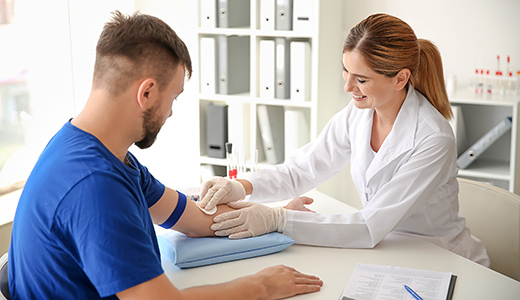PHONE NUMBER
BUSINESS HOURS
View Hours
LOCATION
Monday (08:30 AM – 05:00 PM)
Tuesday (08:30 AM – 05:00 PM)
Wednesday (08:30 AM – 05:00 PM)
Thursday (08:30 AM – 05:00 PM)
Friday (08:30 AM – 05:00 PM)
Saturday ( – – )
Sunday ( – – )
HOW IT WORKS
Select your test by clicking the ‘Search For Tests” link in the image above. Alternatively, you can click the ‘View All Tests’ button in the top right area of this page.
Our qualified staff will ensure any oral, urine, hair, or blood samples are collected without contamination, leading to trusted results.
FEATURED TESTING AND SOLUTIONS
FEATURED GUIDES & BLOGS
The representative was very friendly and courteous and even though I came at the very last minute she was excited to help me. She explained everything thoroughly. She was sure not to touch anything while I was testing not even the phone which made me know I didn’t have to worry about a misread test of contamination. Amazing Experience.
The facility was extremely clean and well cared for and the staff was so helpful and kind! I wish I had a reason to go back!
The team in this office is just fantastic. The warm welcome, sunny smiles, and the level of customer service are outstanding. They raise the bar of excellence.
HOW TO FIND US
Parking Instructions
Our location is easily accessible and surrounded by various convenient parking options. Whether you're driving or using public transportation, finding us is a breeze. We understand that navigating to a new location can sometimes be a challenge, so if you have any trouble locating us, please don't hesitate to give us a call. Our friendly team is always ready to guide you to our doorstep. We can't wait to welcome you!






